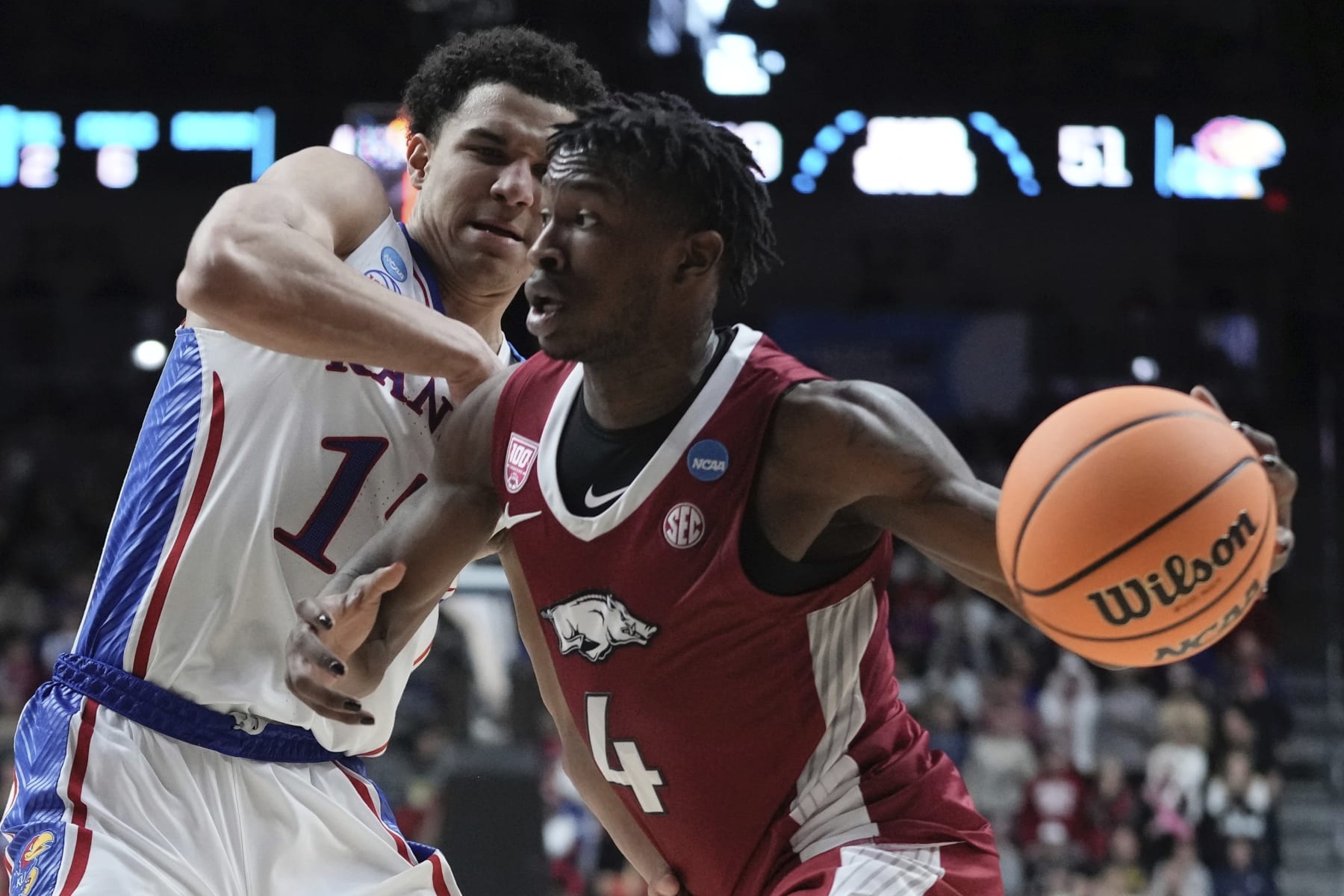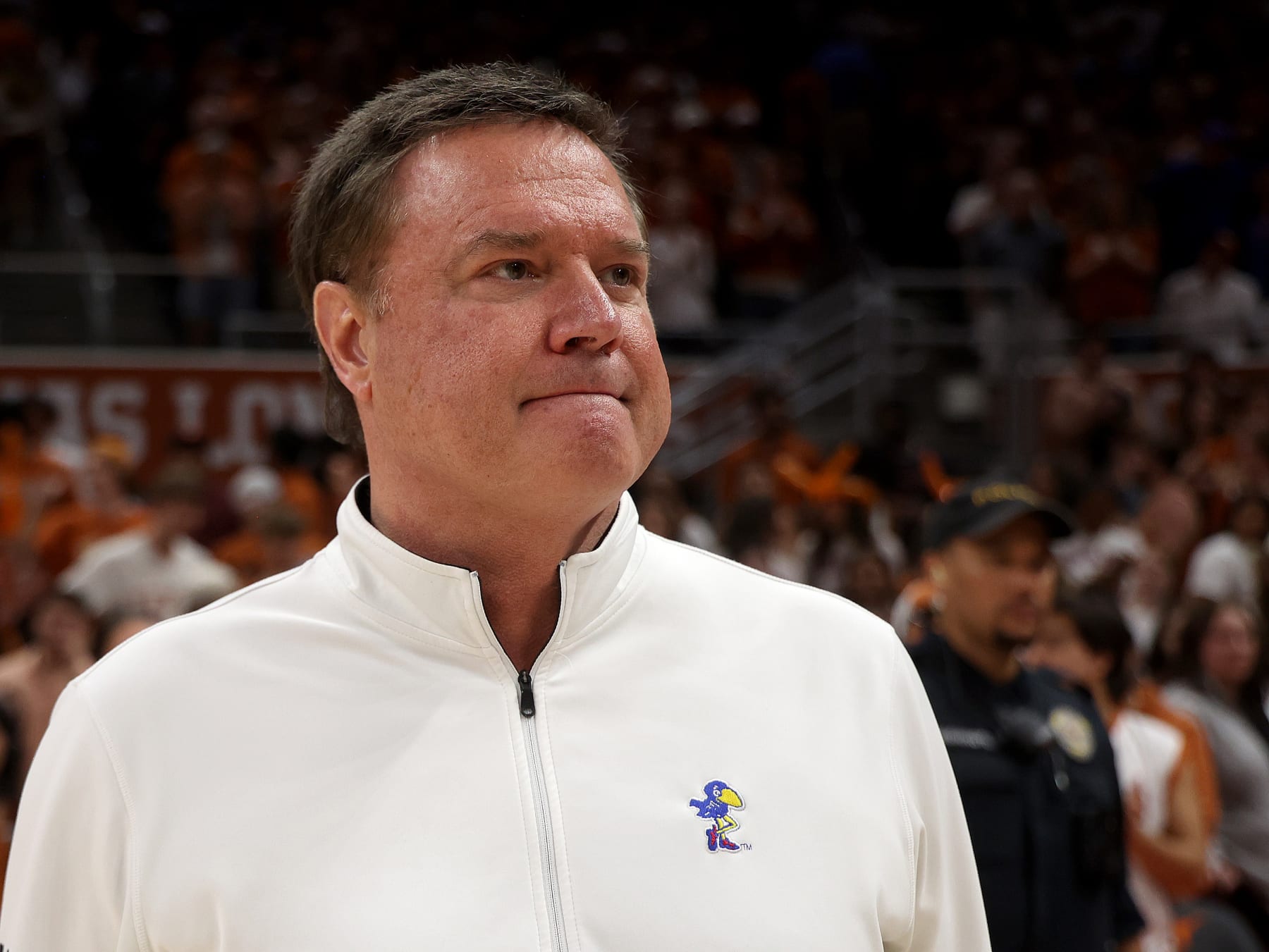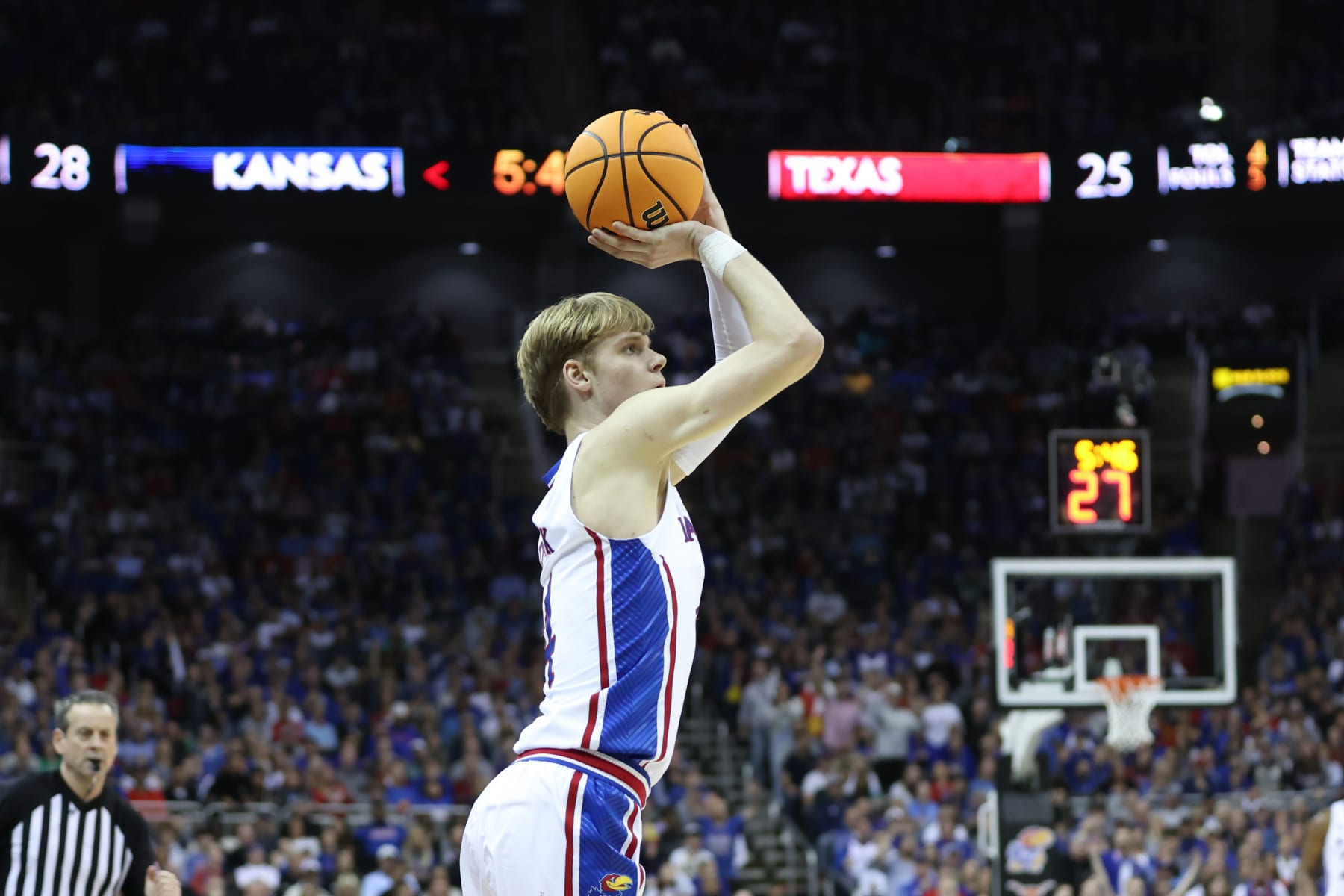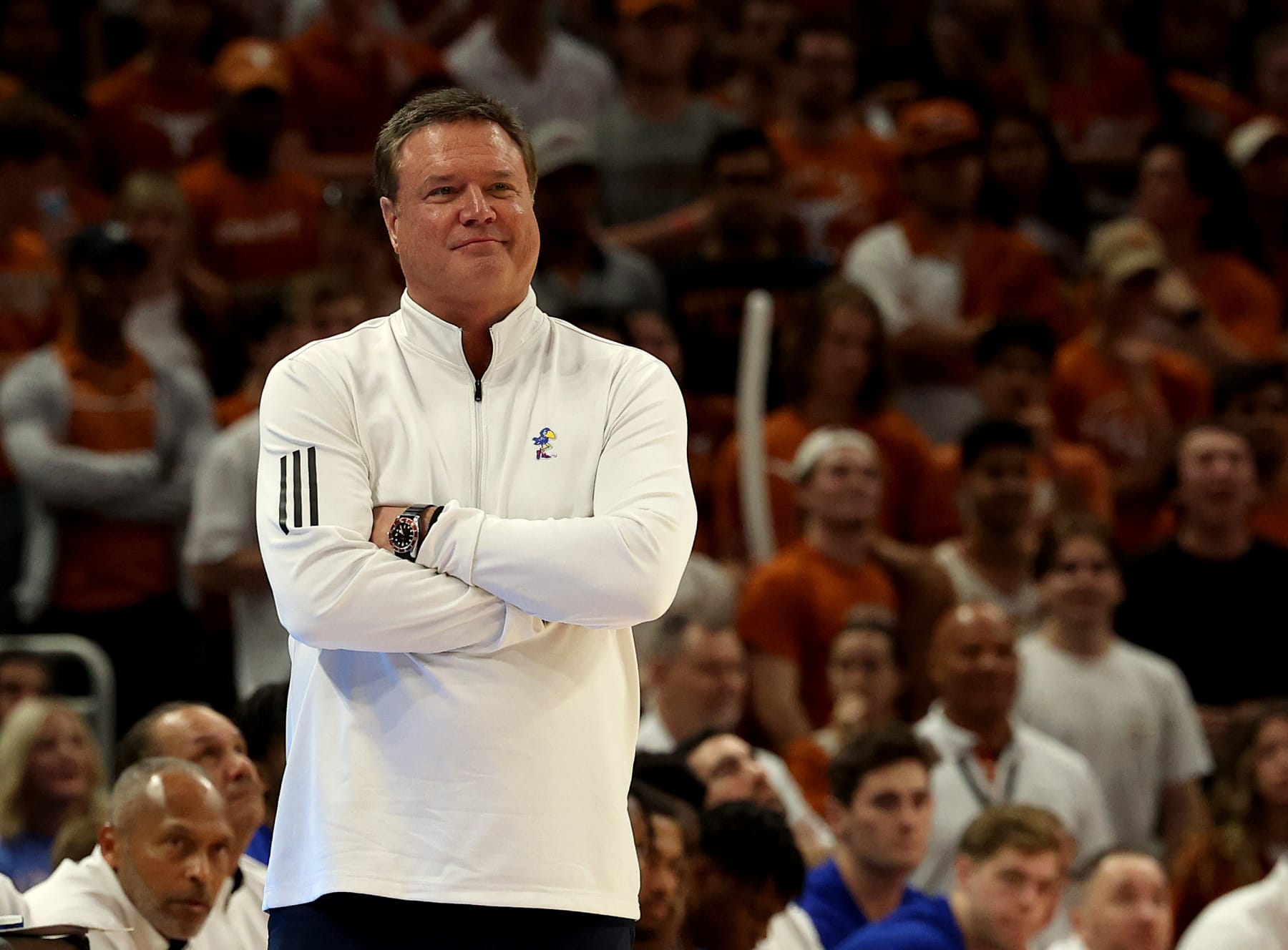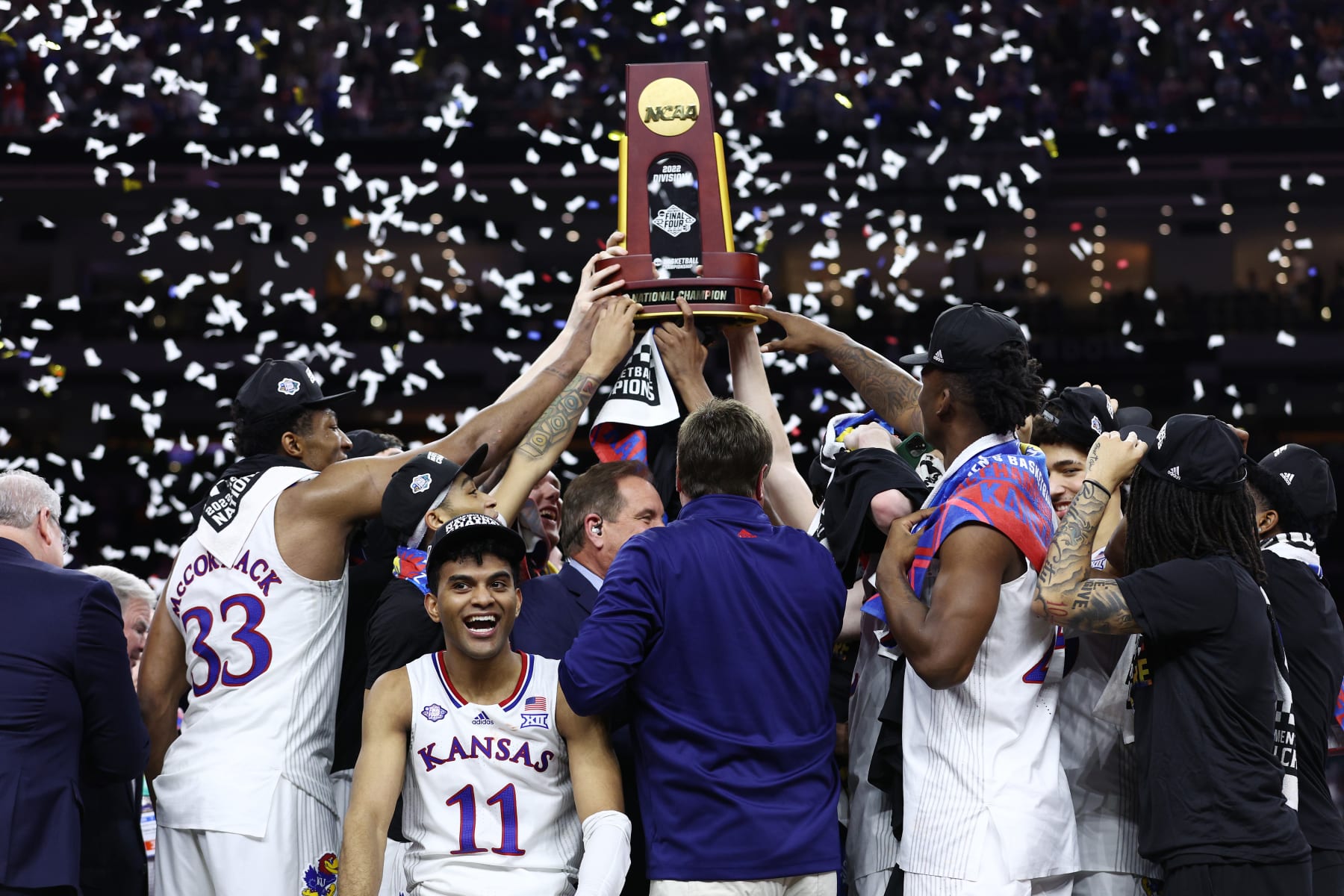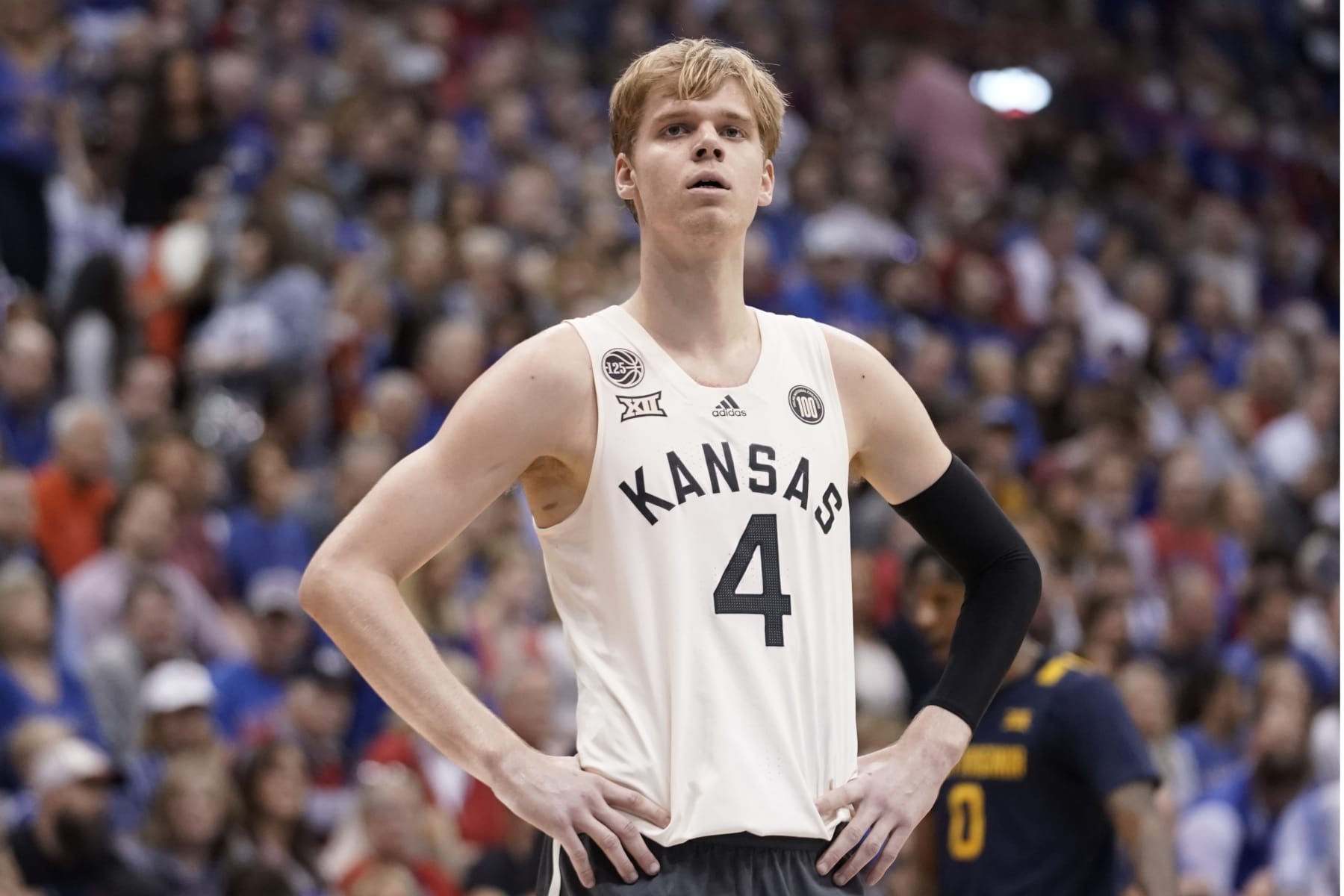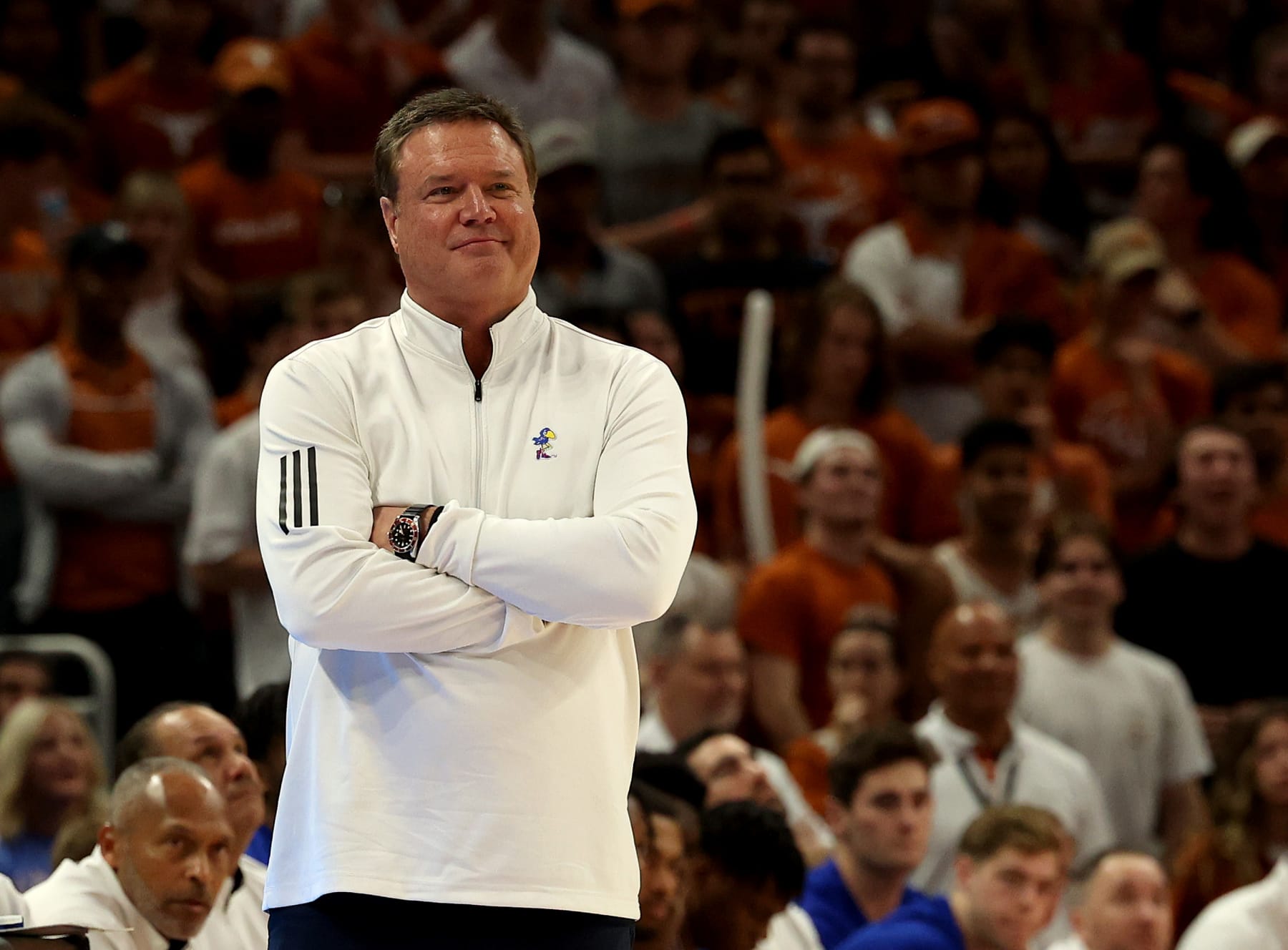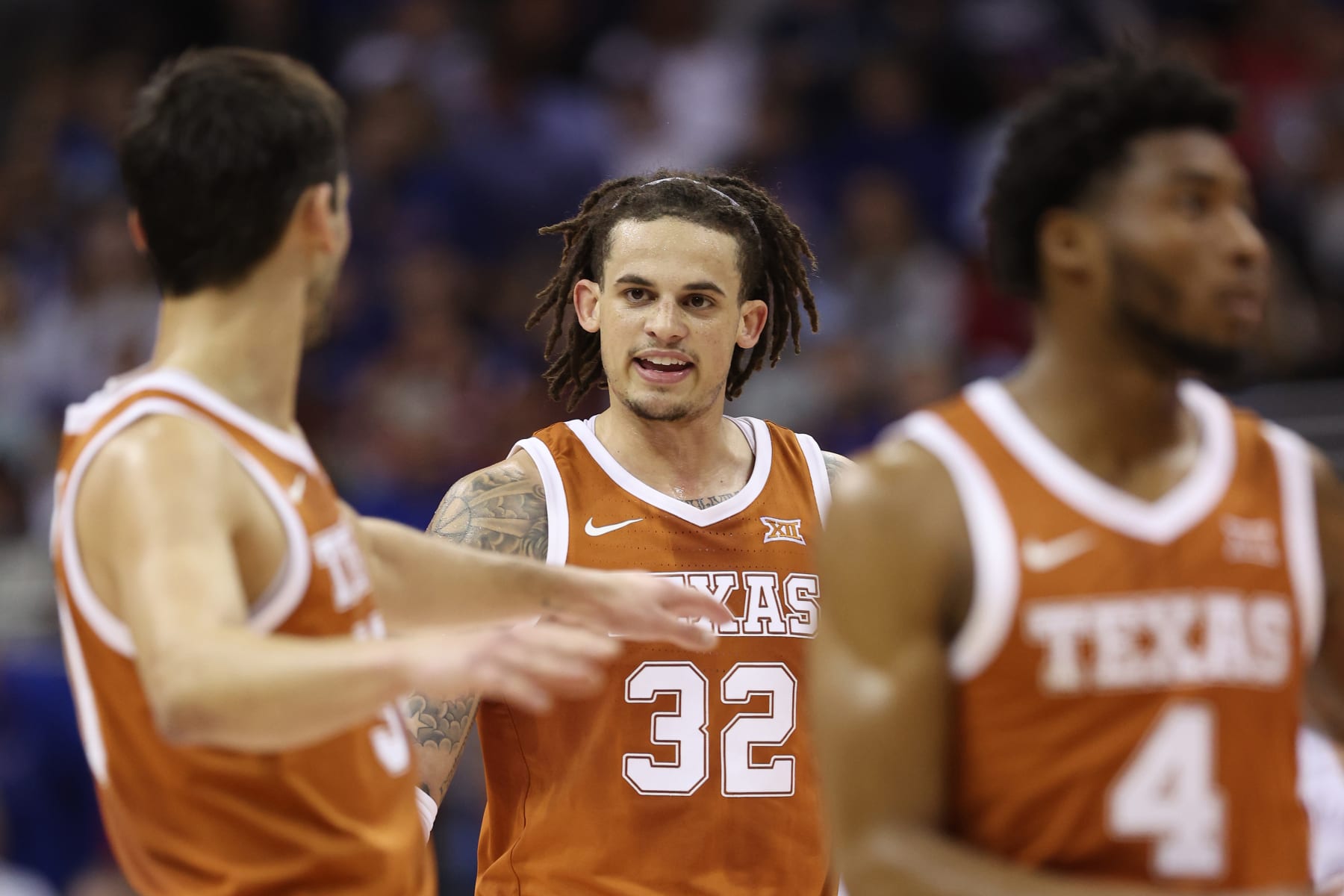Kansas' Loss to Arkansas Makes Back-to-back Title Winner Feel as Unattainable as Ever
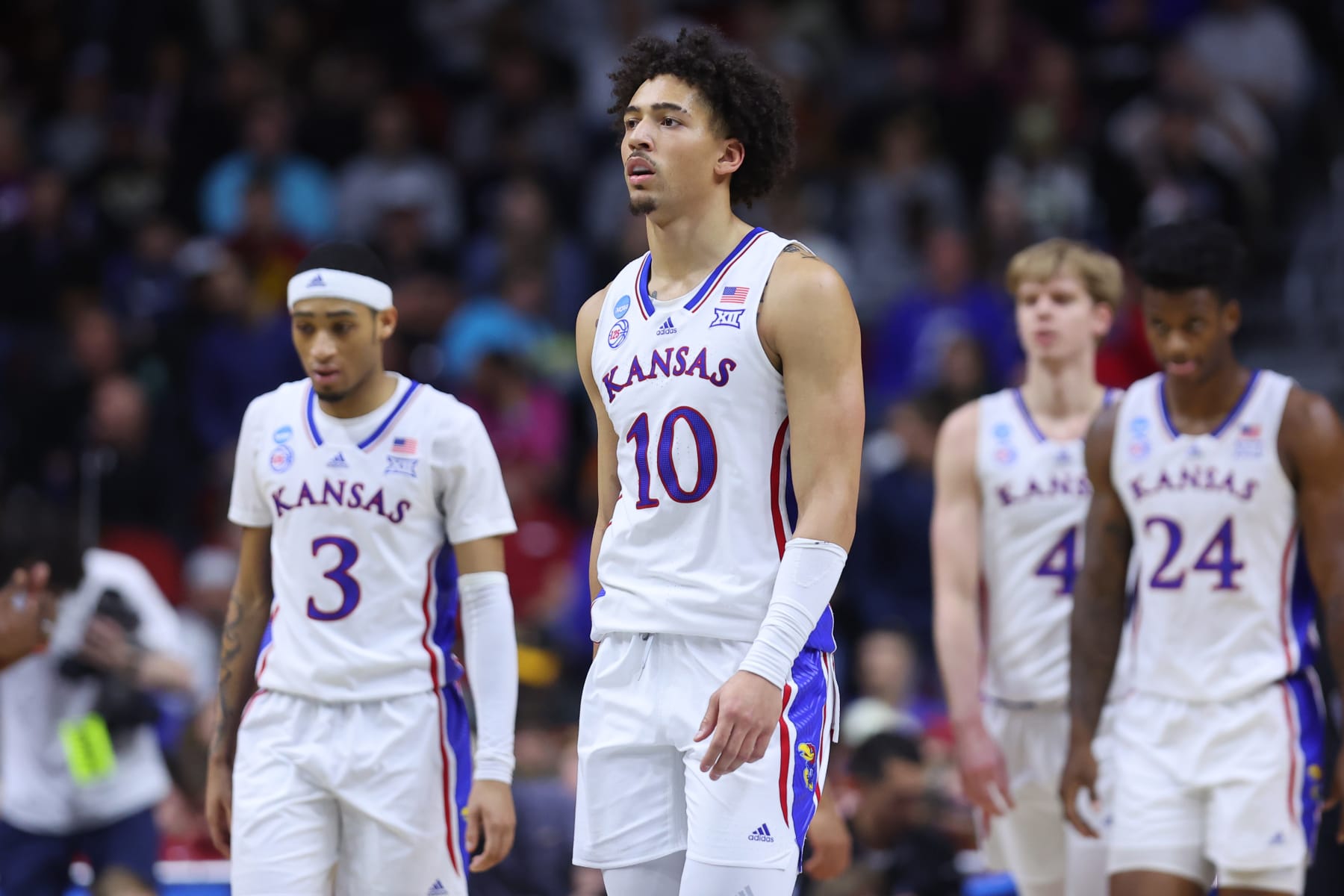
When you face the reigning champ?
You must whip it.
Arkansas' Davonte "Devo" Davis was a raging inferno in the second half of the Razorbacks' 72-71 second-round victory over the No. 1 seed Kansas Jayhawks.
The Hogs trailed 42-31 about four minutes into the second half when Davis ignited. A young man who had not scored more than 21 points in a game since December 2021—and who temporarily left the team for personal reasons in late November of this season—put the team on his back, scoring 21 of Arkansas' next 30 points to tie the game up at 61 apiece with four minutes to go.
He did foul out shortly thereafter, finishing with 25 points before watching the final two minutes from the bench. But he set the stage for the upset.
Davis' incredible individual run put the Razorbacks in a spot for Kamani Johnson's put-back bucket to give them the lead, and for Ricky Council IV's clutch free throws to seal the deal on an incredible win.
For Arkansas, here we go again, right?
The Hogs made the Elite Eight in each of the past two seasons, and preseason expectations for this team were as high as they've been since the year after Nolan Richardson coached them to the 1994 national championship.
They just beat the reigning national champions while getting diddly squat out of their soon-to-be top-five NBA draft pick. (Nick Smith Jr. played 16 scoreless minutes with one assist and one rebound.) If they're finally tapping into that potential, look out. The Razorbacks could match 1985 Villanova's feat of winning it all as a No. 8 seed.
But we'll save that conversation for another day.
On the Kansas side of things, we're once again left to wonder if we'll ever see a back-to-back national champion again.
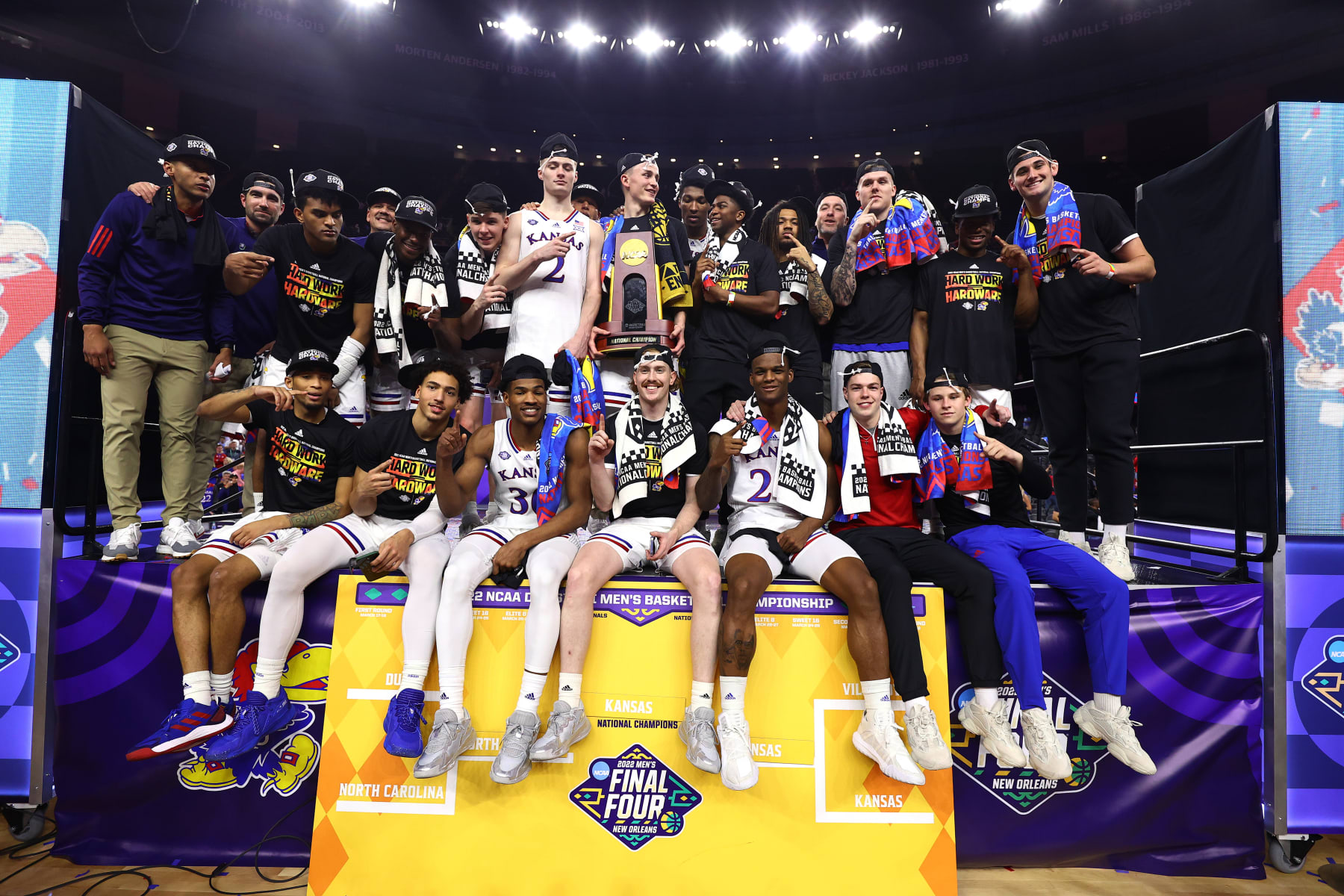
Despite losing Ochai Agbaji, Christian Braun, David McCormack, Remy Martin, Mitch Lightfoot and Jalen Coleman-Lands from the 2022 national champions, the Jayhawks had an outstanding season.
They played the toughest schedule in the entire country.
They won the regular-season crown in one of the best conferences ever assembled.
They won 17 Quad 1 games, good for three more than the closest challenger in that department.
They arguably should have been the No. 1 overall seed.
Jalen Wilson might have been National Player of the Year were it not for Purdue's Zach Edey.
The Jayhawks weren't the favorite to win it all, but 12 percent of brackets had them repeating as champion.
All for naught.
They couldn't even make it to the Sweet 16 in what has been an astounding trend for literally decades now.
2021 champ Baylor? Lost in the second round last year.
There was no tournament in 2020, but 2019 champ Virginia was ousted in the first round when it got a chance to defend its title in 2021.
And on and on it goes back through history.
The last reigning champion to even get to the Sweet 16 was Duke, which won it all in 2015, got a No. 4 seed the following year and defeated both a No. 13 seed and No. 12 seed to reach a regional semifinal (where it lost by double digits).
Again, that's the last time the reigning champion even won two games in the tournament.
Since Michigan State won it all in 2000 and got back to the Final Four the following year, five reigning champions have missed the tournament, and the only one to make it past the Sweet 16 was that Florida team that brought back its entire primary seven-man rotation and repeated in 2006-07.
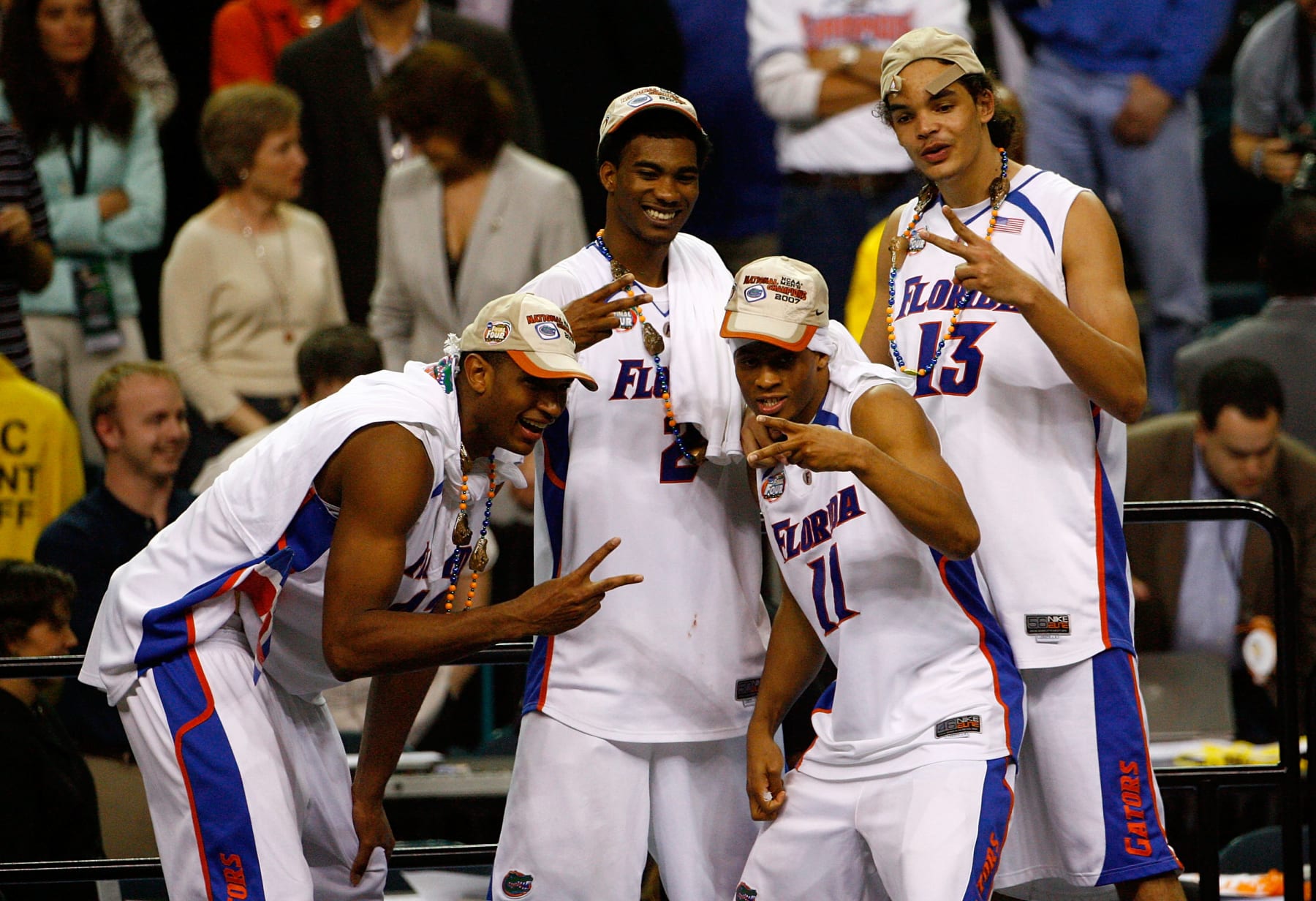
That sort of roster retention is simply unimaginable in today's college basketball climate.
Winning a title and no one declares for the draft?
No one important graduates?
No one important transfers?
Impossible.
No amount of NIL money could make that happen again.
And if this Kansas team couldn't even come close to repeating as champions, it's getting very difficult to imagine that will ever happen again, either.
Back when UCLA won title after title in the 1964-73 range, there were only 22-25 teams in the field, and regions were actually broken up geographically. (Until the Final Four, East Coast teams played East Coast teams and West Coast teams faced West Coast teams.) By no means are we trying to devalue what John Wooden accomplished, but it was undeniably a different tournament. UCLA only had to win four games to win it all in each of those tournaments, and it always got to start with two games against the likes of Long Beach State, Seattle and Santa Clara.
Things have been much more random over the past half-century.
Since the field expanded to 32 teams in 1975 and later to 64 teams in 1985, back-to-back champions has happened just twice: 1991-92 Duke and 2006-07 Florida.
We already noted that Florida brought back everyone. That Duke team almost did, too. The Blue Devils had to replace Bill McCaffrey after he transferred to Vanderbilt—it wasn't anywhere near as prevalent back then, but yeah, dudes were transferring more than three decades ago—but Bobby Hurley, Grant Hill, Christian Laettner, etc. all came back to defend their crown.
And even that reigning champion needed the most memorable shot in college basketball history just to reach the Final Four.
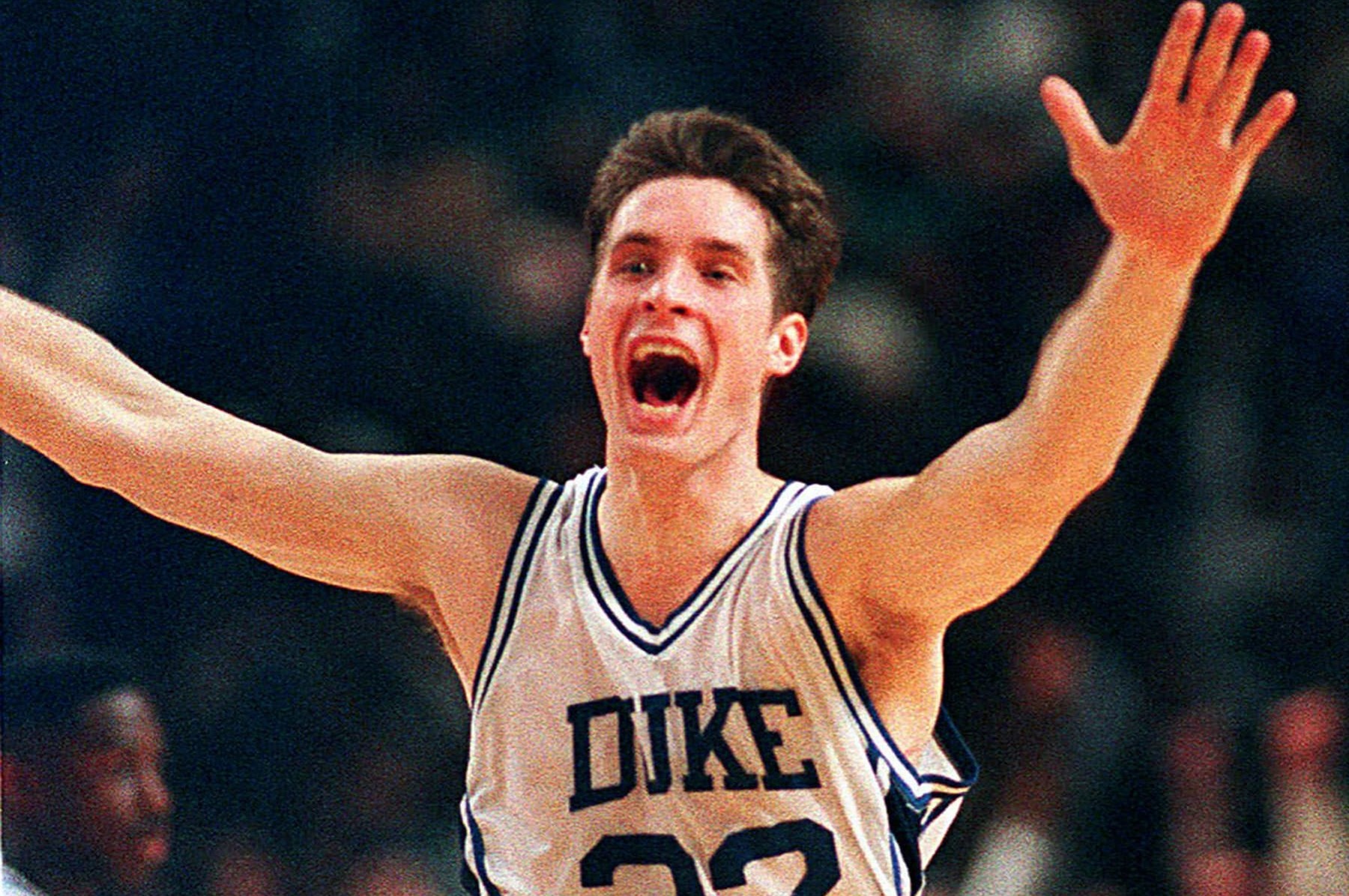
Perhaps the best argument both for and against the possibility of another eventual repeat champion is that this tournament seems to be getting more random by the year.
Thanks to the Princeton Tigers, a No. 15 seed has now made the Sweet 16 in three consecutive tournaments.
And thanks to the Fairleigh Dickinson Knights, the once unfathomable No. 16 over No. 1 first-round upset has occurred twice in the past five dances.
Blame it on whatever confluence of factors you so choose, but parity is at an all-time high. And until the game changes in some fundamental way to benefit the favorites—going from 40-minute games to 48-minute games, abandoning the single-elimination tournament format or something equally drastic—that parity is probably here to stay.
We do almost always see a No. 1, No. 2 or No. 3 seed win it all, so we haven't quite reached the point of throwing a 68-sided die to pick a national champion. However, the thought of a No. 15 seed winning it all is nowhere near as far-fetched as it was back before anyone had ever heard of Dunk City or Saint Peter's.
Eventually, though, that randomness has to produce a repeat champ again, right?
I've seen a roulette ball land in the same slot three consecutive times, which has a probability well north of 1,000-1. Even if we do get to a point where it feels like every team in the field has an equal chance of winning it all, a repeat champ should mathematically happen at least once every seven decades or so.
But if you haven't already reached the point where you are automatically penciling in the reigning champ to lose before the Elite Eight, there's no time like the present to begin.
Kerry Miller covers men's college basketball and Major League Baseball for Bleacher Report. You can heckle him on Twitter: @KerranceJames

